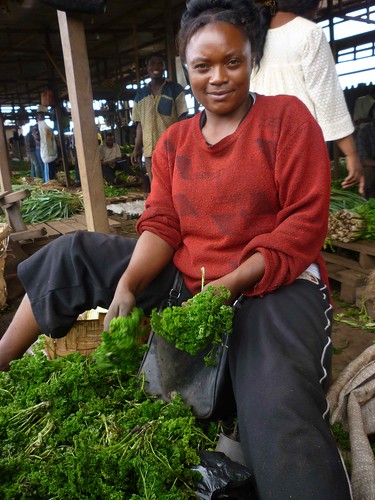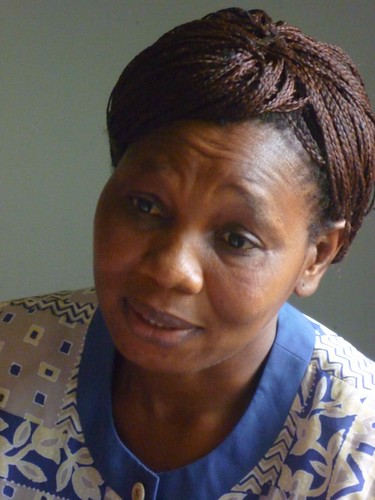Workdays here are characterized by a lot of waiting (for people, for electricity, for internet…), giving us a lot of downtime and ample opportunity to have many interesting conversations. Every conversation I’ve had in the past 2-½ weeks, it seems, has included a mention of corruption in one capacity or another and has shown me just how aware and engaged the people I’m working with truly are. Many of these problems, complicated by a colonial past, permeate Cameroonian society and directly influence UCOMAS.
Now, before I get into the meat of my post, I have to make a disclaimer:
*The following is based off of personal conversations and opinions, and is not meant to be taken as hard fact or with any political or partisan intent. Just read it for what it is— a glimpse into how problems, circumstances and history are perceived and understood by the people I’ve met.*
From the scramble for Africa in the late 19th century, through WWI, II and the Cold War, to modern day capitalist intervention, formerly occupied regions have struggled to find stable and independent ground, and Cameroon is no exception.
Even after the wave of independence that swept through Africa in the 1960s, and despite appearances of subsequent reparation and recompense, the controlling influence of the West has not been and can never be fully removed. Among the most common problems Eric, Johanna and I have hashed and rehashed is the degree of foreign presence in Cameroon’s economy and culture.
On the economic front, primarily French and American corporations have mastered the art of exploiting natural resources in Cameroon, exporting loads of raw materials without cultivating a manufacturing industry in the country. Eric gave us several examples, one of which was eerily (or expectedly) similar to the well-known Firestone controversy in Liberia. I say eerily because at the time of this conversation, I was reading This Child Will be Great, the memoirs of Liberian president Ellen Johnson Sirleaf. In her book, she documents the Firestone Tire & Rubber Company’s extensive exploitation of Liberian land and people, exposing how corruption, intimidation and pressure gave the company so much leeway, and the right to continue as-is until 2025. Although Firestone was not a product of colonialism, its treatment of Liberia reflected the colonial mentality of western imposition and exploitation of Africa. The example Eric described was that of an American company that extracts rubber from Cameroon’s ample reserves, but as he explained, the tires are made in China. It’s reminiscent of the same colonial dynamic, only justified through new means.
Colonialism left its mark on culture as well. Last week Johanna and I attended a conference at the Centre Culturel Francais (CCF) on the Rights of the Child in Cameroon. When we told Eric about the event and what we heard, he offhandedly made a comment about how it was the French cultural center that was conducting a seminar on Cameroonian issues. Commendable, yes, but he found it upsetting that the CCF is very well known in Douala, as is the German cultural center, but no one is aware of a small Cameroonian cultural center in Yaounde— the French and German organizations are much more popular.
Furthermore, the languages spoken in Cameroon expose another relic of colonialism. Of course, French is the dominant language spoken in Cameroon, directing business and government. However, the country’s colonial past left it with a bizarre and complicated mix of Anglophone and Francophone regions. As a minority group, English speakers in Cameroon are marginalized and excluded from services as a result of a language barrier within their own country. Citizens of the same state are separated along linguistic lines, making communication between countrymen and women exceedingly difficult.
Such barriers are prevalent in Sandaga as well. The market, which is separated into sectors according to product, service or other factors, has one sector allocated specifically for merchants from Anglophone Cameroon (mostly from the city of Bamenda). The woman pictured above is an English-speaking trader in Sandaga, and while women already confront numerous constraints in the market, the Anglophone workers have the added language barrier making communication that much more strained.
Janet Atam (above), the secretary of UCOMAS, was born in Limbe, an Anglophone village only 40 minutes outside Douala. During UCOMAS’ General Meetings and at each executive board meeting, Janet has to take extra time to clarify and translate points made during the discussions. I’ve noticed that some other members become frustrated when Janet asks follow-up questions, but everyone knows it is absolutely necessary, both for Janet’s knowledge and for transmitting the information to the other women in the Bamenda sector. Despite their efforts, though, Janet’s ability to contribute and participate is hindered by her native language, making UCOMAS face this obstacle in addition to all the rest.
Because the varying languages are an accepted aspect of day-to-day life in Cameroon, the problems they create are easily dismissed. However, in an effort to give UCOMAS the best possible future, such problems must be identified, understood and addressed.
Posted By Helah Robinson
Posted Jun 23rd, 2009




100 Comments
Khadija
June 23, 2009
Helah! It sounds like you’ve had an amazing time so far. It’s really interesting that the colonial language divisions are this strong to me – does this have anything to do with socio-economic class, ethnic background, or geography? How do national languages play into these divisions – are they widely spoken? Ok, enough questions! I’m really happy that you’re having a great time!
Helah Robinson
June 23, 2009
Thanks so much Katie! Just a quick response to your questions–yeah, it has to do with most of those factors. Geographically, English speakers are primarily in the west because Cameroon was split between England and France for much of the colonial period. Today, it does correlate to socio-economic class because French is more dominant and controls both government and business. Also, I believe, the French were more ‘hands-on’ during colonialism than were the British, so the French sectors were more attended to during that time… As far as native languages go, yes there are many of them, but they are not widely spoken. People I’ve met identify with a certain ethnicity and some speak the language, but it is no where near as prevalent as Wolof is in Dakar (which you can relate to!). Thanks again Katie!
Bethany
June 23, 2009
Thanks for sharing these discoveries. It’s frustrating to know that so many of the products we use on a daily basis in the US are obtained through the exploitation of other people and their natural resources. I will add This Child Will be Great to my reading list.
ben
June 23, 2009
I don’t have any insightful questions for you, but I wanted to say thanks for taking the time to post on the blog! I feel like I’m learning a lot, just from reading what you’ve written so far. Also, the pictures are great, make it seem much more real than just what I can imagine.
Rob
June 23, 2009
I guess one of the strongest legacies of economic colonization is corruption. Successful colonization requires some collusion and cooperation from the ruling indigenous power. The absence of that cooperation requires too much military and police resources of the occupier. (This is how slave trade flourishes, then and now). So when the occupier leaves, the stain and culture of corruption doesn’t. It just waits for the next colonizer. (Is that going to be China in the coming decades?)
Helah, thanks for the work that you are doing. These are deep, systemic problems, but we have seen that grassroots movements (which all necessarily start small) can have huge impacts. (Soviet Union – 1989, Iran (hopefully) – 2009).
Keep the posts and pictures coming.
peya
June 23, 2009
Very disturbing info. From experience (being a primarily Hebrew speaking person in an English speaking country) I know how language barriers can create problems. Misunderstanding, frustration aggravation and what not.
And to think that people face isolation and bad treatment because of that its heartbreaking. and I don’t even touch the subject of large companies exploiting Africa.
your blog is extremely valuable as is Joahnas.
I can’t wait for the documentary.
keep it coming.
Walter James
June 24, 2009
Great post, Helah.
Is Cameroon trying to promote a single indigenous language at all, kind of like Wolof in our country of Teranga?
By the way, your photos are top-notch.